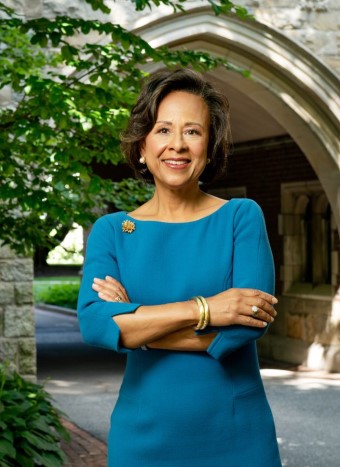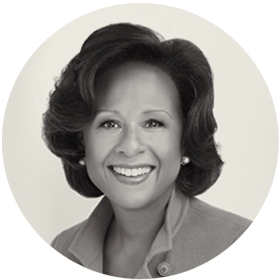
In August 2019, we began work on a strategic plan for Wellesley College, the first in recent history.
While Wellesley’s longstanding mission—to provide an excellent education to women who will make a difference—is as crucial as ever, the world has been changing around us.
Our student body is more diverse than it was even 10 years ago. When they graduate, our current students will switch jobs and careers more frequently than previous graduates did, be more global and mobile, and have to navigate an information ecosystem that is often divisive and destructive, even as it allows more opportunities for their voices to be heard. They will confront challenges that include systemic and persistent forms of discrimination that continue to disadvantage women and minorities, the ravages of climate change, and the need to preserve humanistic values in the era of artificial intelligence.
How can we equip Wellesley graduates to thrive in such a world? How can we reorganize ourselves to be more inclusive and more relevant, helping women from all backgrounds progress in their courses of study, while preparing them for leadership in volatile times?
By March 2020, the Wellesley community—administrators, faculty, staff, students, trustees, and friends—was hard at work on a plan to answer those questions. Then, the pandemic intervened, and we made the painful decision to send our students home. We felt that we had to put off the delivery of our plan until 2021.
COVID-19 brought our planning process into focus. The pandemic revealed so many injustices in the society around us, including the economic losses and career costs suffered disproportionately by women, the health effects suffered disproportionately by minorities, and the extreme inequalities even among our students.
We saw it clearly: While ensuring that we continue to provide an outstanding education to young women, we have an obligation to advocate for women’s empowerment and gender equality—and to serve as a force for change.
So, with vigorous community input, we identified these four key goals:
- Advancing a transformative education, one that is holistic, cross-disciplinary, and focused on inclusive excellence.
- Elevating Wellesley’s role and influence in the world, and embracing our power as a leader, convener, and catalyst.
- Strengthening our organization and governance, so our structures help us make timely decisions, use our resources wisely, and achieve our institutional goals.
- Building community, including creating a residential experience that promotes a sense of belonging, inclusion, and wellness; and ensuring that inclusive excellence is a lived experience for all of our faculty and staff.
I am so grateful to everyone who contributed to our strategic plan, which is available at www.wellesley.edu/about/strategicplanning, and I hope our alumnae, too, will help us remake the College, in order to be even more true to ourselves.
The response to our plan has been exciting, and we are already seeing its goals come to life.
For example, the Anne Shen Chao ’74 Office of Student Success is a huge step forward for inclusive excellence at Wellesley—an important addition for our first-generation students and students from other underrepresented groups. The Office of Student Success serves as a hub for these students, ensuring that they are able to build community, develop the tools they need to thrive at Wellesley, and access all the resources the College has to offer. The search for its inaugural director is underway.
In terms of our influence in the world, as working women everywhere disproportionally struggled with the effects of the pandemic, we decided that it was time for Wellesley to illuminate the underlying issues. We asked Layli Maparyan, executive director of the Wellesley Centers for Women, and Olga Shurchkov ’01, director of the Knapp Social Science Center, to help us envision a virtual summit on creating a truly “she-centered” economy. The Carnegie Corporation has provided funding for this event, which we plan to host in the spring, bringing together Wellesley faculty and other experts.
Ultimately, our strategic plan is a call to action. If we are to live our motto, Non Ministrari sed Ministrare, we must focus on preparing young women to counteract the glaring systemic problems in our world. We must reshape our own systems to increase our effectiveness and our influence. We must use our collective force to build a brighter future for all.
I look forward to sharing more news about our achievements under this plan, as we approach the College’s sesquicentennial and work together toward a better world.






